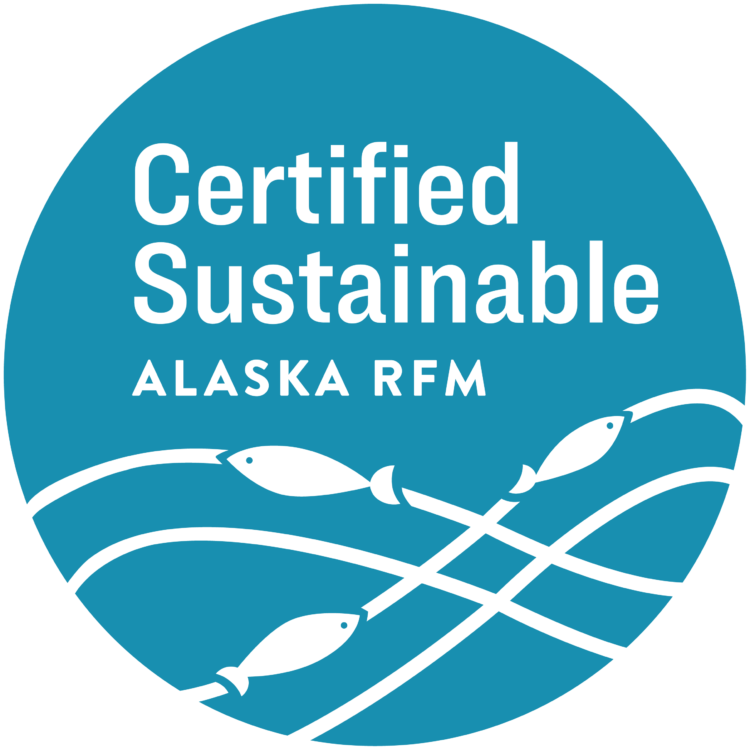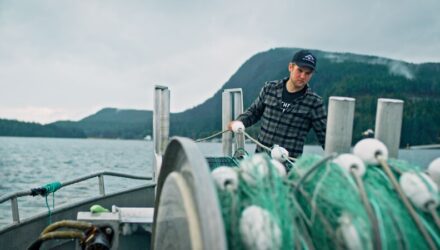FOR RELEASE: Certified Seafood Collaborative Takes Ownership of RFM Certification Program


FOR IMMEDIATE RELEASE: July 1, 2020 Contact: Jeff Regnart, RFM Program Manager, [email protected], 907-240-8978
Juneau, Alaska (July 1, 2020) – On July 1, 2020, the Certified Seafood Collaborative (CSC), a 501(c)(3) non-profit foundation led by a diverse board of seafood and sustainability industry experts, became the owner of the Responsible Fisheries Management (RFM) Certification program, a third-party sustainable seafood certification program for wild capture fisheries. The Alaska Seafood Marketing Institute officially handed over ownership after a six-month period of transition following over ten years of dedication to developing the robust and independent certification for the industry. The transfer of RFM to the CSC presents new opportunity for cost savings, increased efficiencies and growth outside of Alaska fisheries.
“Alaskans have always understood that sustainability is essential to a thriving environment, economy and communities. Since its inception, RFM has grown to be a globally recognized sustainable seafood certification program providing credible independent assurance that Alaska’s fisheries are verified as sustainable,” states Allen Kimball, EVP of International Operations and Sales for Trident Seafoods and CSC board member. “This new ownership by the CSC represents a strategic milestone critical to supporting RFM’s expansion to other fisheries and relevance in global markets.”
The CSC Foundation board has identified three key areas of focus as they take over management of the RFM certification program: decreasing assessment costs over the five-year fishery assessment cycle; expanding use of the program through increasing participation in chain of custody and use of the new RFM logo; and certifying other high-performing fisheries outside of Alaska.
RFM has certification standards for both fisheries and chain of custody (CoC). All current RFM fishery standards, certifications, audits, and chain of custody certifications will remain intact and transfer to the CSC’s purview without interruption. ASMI will continue to provide marketing and administrative support for the program.
“It was always ASMI’s vision to transfer the ownership to an outside entity once RFM had the infrastructure and matured into a globally accepted certification program,” states Mark Fina, the CSC interim board chair. “We are thankful to the ASMI Board’s vision and dedication in building such a viable program. We are proud to bring the ownership of RFM Certification to our foundation and to continue to offer such a credible choice to the marketplace.”
A versatile and modern new RFM logo launched last year and the program remained committed to not charging logo license fees; a major difference between RFM and other certification programs. The new logo also calls out product origin, as identifying connection to the source is key when it comes to purchasing food. The new RFM logo has been in use for customers with chain of custody certification since October 1, 2019, and is trademarked, registered, available in multiple languages, and in rectangular and circular versions. Use of the old RFM logo will end by September 22, 2020.
Visit the RFM Certification website for more information on RFM and the CSC.
About RFM and the CSC Foundation Board:
The CSC is a 501(c)(3) non-profit foundation with a diverse board of seafood and sustainability experts. As owner of the RFM Certification program, the CSC Foundation board is the approving body for all RFM Certification standards, strategy, and policies related to the RFM Program. The RFM Certification program is a voluntary and internationally accredited assessment of whether a fishery meets strict criteria to be certified as “responsibly managed.” It is a comprehensive program founded on the strongest and most widely acknowledged international standards and practices.
The RFM Fisheries Standard is rigorous, covering four key components for evaluating fisheries: A) The fisheries management system; B) Science and stock assessment activities, and the precautionary approach; C) Management measures, implementation, monitoring and control; and D) serious impacts of the fishery on the ecosystem. These four components contain 13 fundamental clauses, with another 125 supporting clauses.



